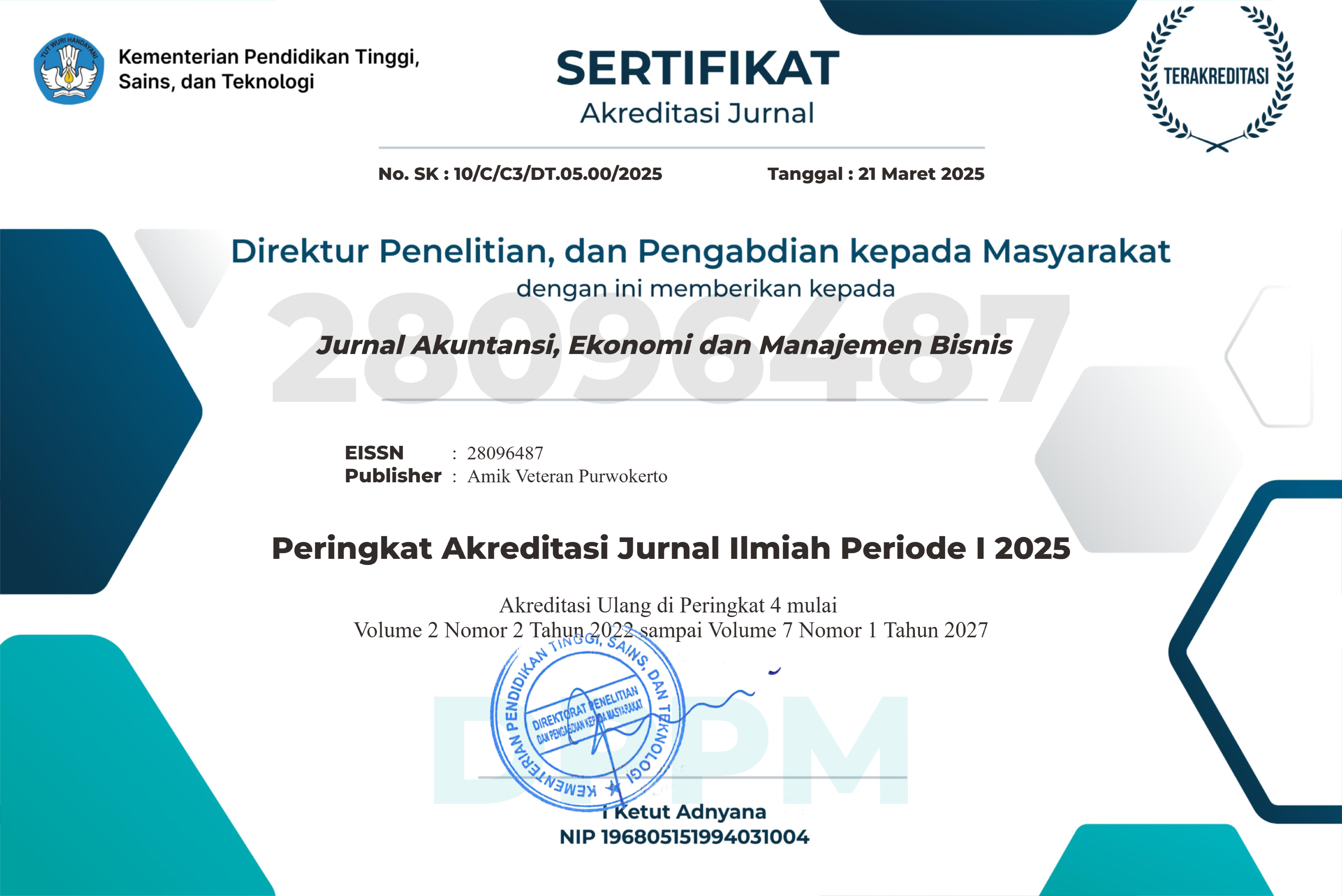Much To Choose, Too Confused To Decide: Investigating Customer Confusion As A Mediator Of Information Overload And Decision Postponement
DOI:
https://doi.org/10.55606/jaemb.v5i2.7320Keywords:
Information overload, customer confusion, decision postponement, digital consumer behavior, SSO, e-commerceAbstract
This study aims to analyze the impact of information overload on decision postponement, with customer confusion as a mediating variable, in the context of consumer behavior on e-commerce platforms in Indonesia. The study adopts a quantitative approach, conducted through a survey method using Google Forms as the data collection instrument, involving 150 active e-commerce users as respondents. Data analysis was carried out using the Partial Least Squares Structural Equation Modeling (PLS-SEM) technique. The findings reveal that information overload has a positive and significant effect on both customer confusion and decision postponement. Moreover, customer confusion is found to significantly mediate the relationship between information overload and decision postponement. These results support the Stressor–Strain–Outcome (SSO) theory and indicate that excessive information load can lead to confusion, which in turn causes consumers to delay decision-making. This study contributes to the enrichment of theoretical literature in the field of digital consumer behavior and provides practical implications for e-commerce practitioners in managing the information presented to consumers.
References
Chung, D., Chen, Y., & Meng, Y. (2023). Perceived information overload and intention to discontinue use of short-form video: The mediating roles of cognitive and psychological factors. Behavioral Sciences, 13(1), 50.
Eppler, M. J., & Mengis, J. (2021). The concept of information overload: A review of literature from organization science, accounting, marketing, MIS, and related disciplines. Information Society, 20(5), 325–344. https://doi.org/10.1080/01972240490507974
Gao, S., & Zhao, L. (2020). The Influence of Online Travel Consumers’ Confusion on the Delay of Purchase Decision——Based on the Regulation of Cognitive Needs.
Huang, Q., Lei, S., & Ni, B. (2022). Perceived information overload and unverified information sharing on WeChat amid the COVID-19 pandemic: a moderated mediation model of anxiety and perceived herd. Frontiers in Psychology, 13, 837820.
Huang, Y., & Suo, L. (2025). The Impact of Consumer Confusion on Chinese Consumers’ Delayed Choices in Online Shopping: The Mediating Role of Negative Emotions. Community and Social Development Journal, 26(1), 1–15.
Jha, B. (2019). The Role of Social Media Communication: Empirical Study of Online Purchase Intention of Financial Products. Global Business Review, 20(6), 1445–1461. https://doi.org/10.1177/0972150919848912
Kaur, H. (2024). Consumer Decision-Making in the Era of Information Overload. Universal Research Reports, 11(2), 27–31. https://doi.org/10.36676/urr.v11.i2.04
Lv, J., & Liu, X. (2022). The impact of information overload of e-commerce platform on consumer return intention: Considering the moderating role of perceived environmental effectiveness. International Journal of Environmental Research and Public Health, 19(13), 8060.
Manolică, A., Guță, A.-S., Roman, T., & Dragăn, L. M. (2021). Is consumer overchoice a reason for decision paralysis? Sustainability, 13(11), 5920.
Peng, M., Xu, Z., & Huang, H. (2021). How Does Information Overload Affect Consumers’ Online Decision Process? An Event-Related Potentials Study. Frontiers in Neuroscience, 15(October), 1–11. https://doi.org/10.3389/fnins.2021.695852
Saranya, P., & Joji Alex, N. (2024). Consumer Confusion on Cognitive Dissonance: A Conceptual Framework. NMIMS Management Review, 32(1), 14–20.
Sharma, A., Pandher, J. S., & Prakash, G. (2023). Consumer confusion and decision postponement in the online tourism domain: the moderating role of self-efficacy. Journal of Hospitality and Tourism Insights, 6(2), 1092–1117. https://doi.org/10.1108/JHTI-03-2022-0096
Sharma, A., Singh, J., & Prakash, G. (2023). Consumer confusion and its consequences in the e-hospitality marketplace: the mediating role of negative emotions. Journal of Service Theory and Practice, 33(4), 488–510.
Wang, J., Vo-Thanh, T., Liu, Y.-H., Dang-Van, T., & Nguyen, N. (2023). Information confusion as a driver of consumer switching intention on social commerce platforms: a multi-method quantitative approach. Information Technology & People, 37(1), 171–200.
Xue, P., Jo, W., & Bonn, M. A. (2020). Online hotel booking decisions based on price complexity, alternative attractiveness, and confusion. Journal of Hospitality and Tourism Management, 45, 162–171.
Downloads
Published
How to Cite
Issue
Section
License
Copyright (c) 2025 Jurnal Akuntansi, Ekonomi dan Manajemen Bisnis

This work is licensed under a Creative Commons Attribution-ShareAlike 4.0 International License.








